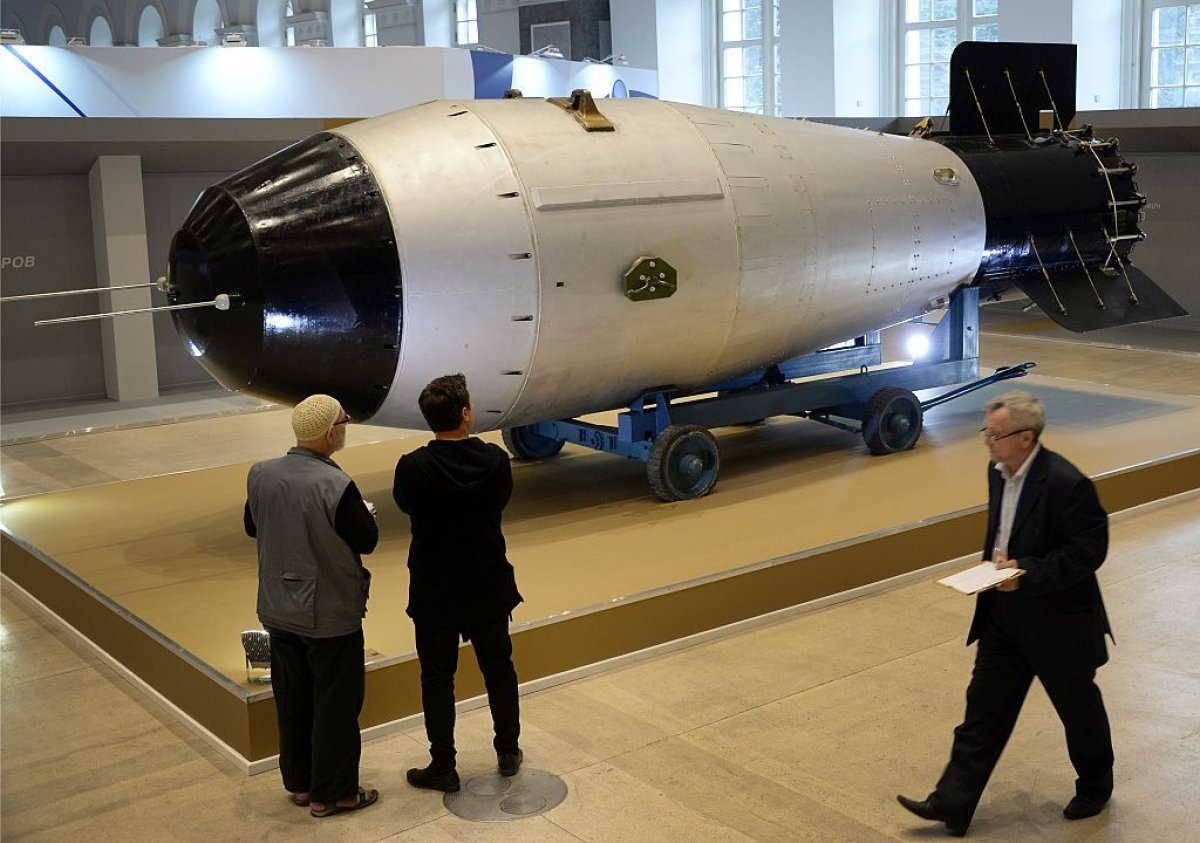Satellite images suggest that Russia has expanded a nuclear storage facility in its Kaliningrad enclave, a new report released Monday by the Federation of American Scientists (FAS) suggests.
According to the nonpartisan policy institute, the images show that a nuclear bunker, which is located along the Baltic coast between Lithuania and Poland, has been deepened and covered with a new concrete roof over the past few months.
"There is a heavy duty external perimeter of multilayered fencing. The bunkers themselves have triple fencing around them as well. These are typical features from all the other nuclear weapons storage sites that we know about in Russia," Hans Kristensen, director of the nuclear information project at FAS, told The Guardian.
Russia upgrading nuclear weapons storage bunker in Kaliningrad. Story by @julianborger in @guardian https://t.co/oX1m5l1Uih My original story with satellite photo analysis is here https://t.co/O5bmxihIW2 pic.twitter.com/H64ONhHR62
— Hans Kristensen (@nukestrat) June 18, 2018
Kristensen explained that FAS has been monitoring the site for some time. Although the organization, which works to reduce the spread of nuclear weapons, noticed some alterations in the past, Kristensen classified this as significantly more "dramatic".
"This is the first time we've seen one of the nuclear bunkers being excavated and apparently renovated," he said.
Newsweek reached out to the Embassy of the Russian Federation for comment, but the request was not immediately returned.
Kristensen clarified to The Guardian that the images don't prove Russia is expanding its nuclear arsenal. He said it could be that the Russians plan to move weapons to the site or want the facility to be ready on short notice. At the same time, the images "do show it is an active site," he said.

In response to the report, Lynn Rusten, senior advisor for the Global Nuclear Policy Program at Nuclear Threat Initiative called on Russia and the U.S. "to resume talks on strategic stability."
"Both sides have questions and concerns about what the other is doing in the military and nuclear spheres. A resumption of dialogue is essential to increasing understanding, reducing the chances of miscalculation, and heading off an arms race," Rusten told Newsweek.
A previous report from FAS estimates that, as of 2018, Russia has a stockpile of 4,350 nuclear weapons. In comparison, the organization estimates that the U.S. only has about 3,800. However, of these stock piles, Russia is believed to keep about 1,600 weapons ready to deploy, compared to 1,750 by the U.S. Each nation is also believed to have more than a thousand retired nuclear weapons awaiting dismantlement. When compared to the next largest stockpiles, Russia and the U.S. dwarf all others, with France estimated to possess 300 ready-deploy weapons and China estimated to have 270.
The analysis of satellite images comes during a period of heightened tensions between Russia and NATO. Moscow's neighbors, such as Norway, Poland, Sweden, Estonia, Latvia and Lithuania, have all expressed concern about Russia in the wake of the 2014 annexation of Ukraine's Crimean peninsula, as well as Moscow's support for pro-Russian separatists fighting in Ukraine.
Last week, Russia promised "consequences" in response to Norway's plan to more than double the presence of U.S. Marines within its borders starting next year. In May, reports circulated suggesting that Poland had offered $2 billion for the U.S. to permanently station troops within its borders. Russia responded to the reports, saying such a move could "lead to counteraction from" its side.
Uncommon Knowledge
Newsweek is committed to challenging conventional wisdom and finding connections in the search for common ground.
Newsweek is committed to challenging conventional wisdom and finding connections in the search for common ground.
About the writer
Jason Lemon is a Weekend Editor at Newsweek based in Brooklyn, New York. Prior to taking on the editor role, Jason's reporting focused on ... Read more
To read how Newsweek uses AI as a newsroom tool, Click here.








